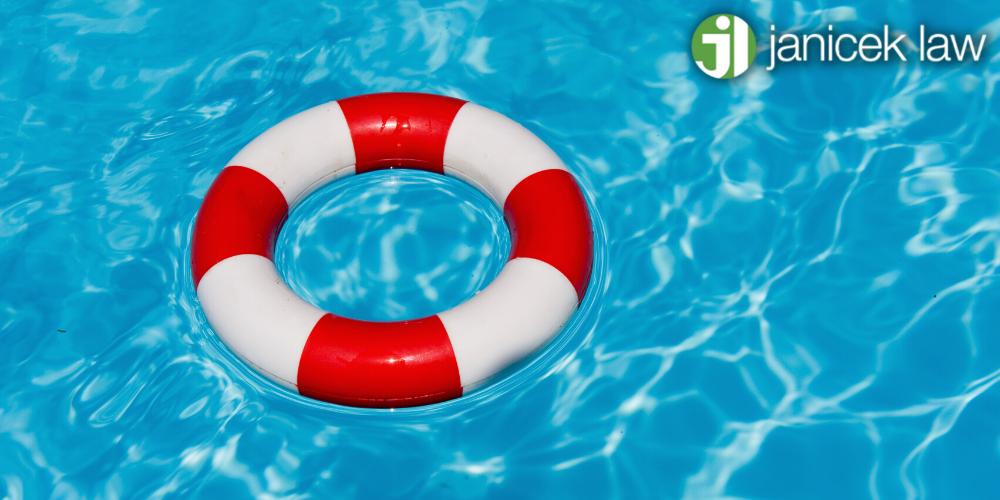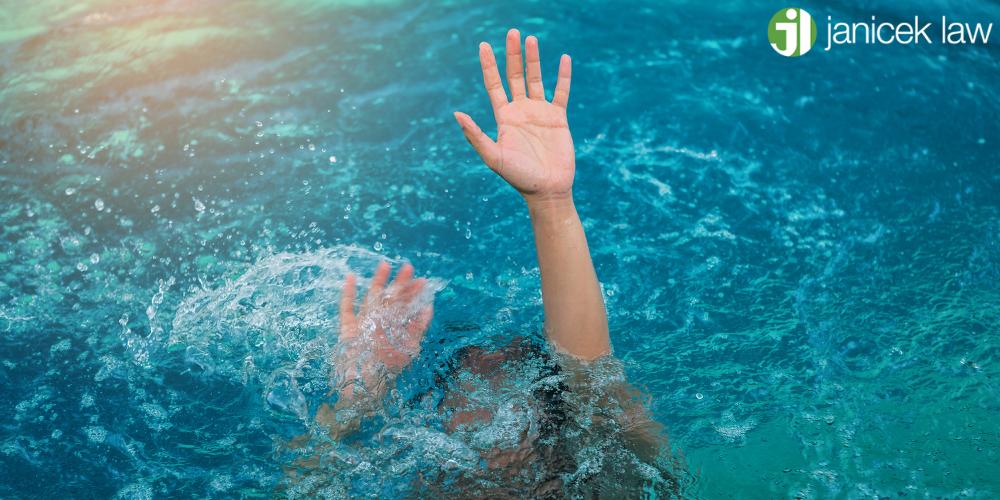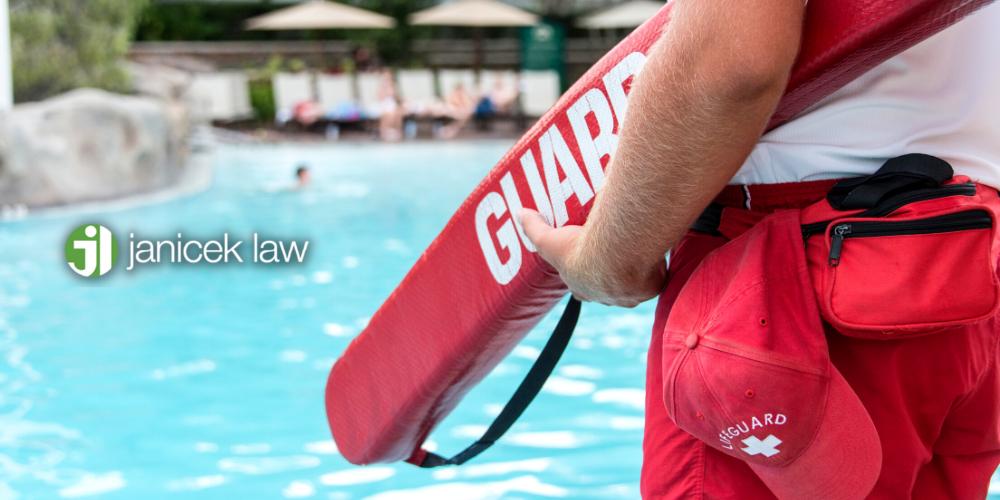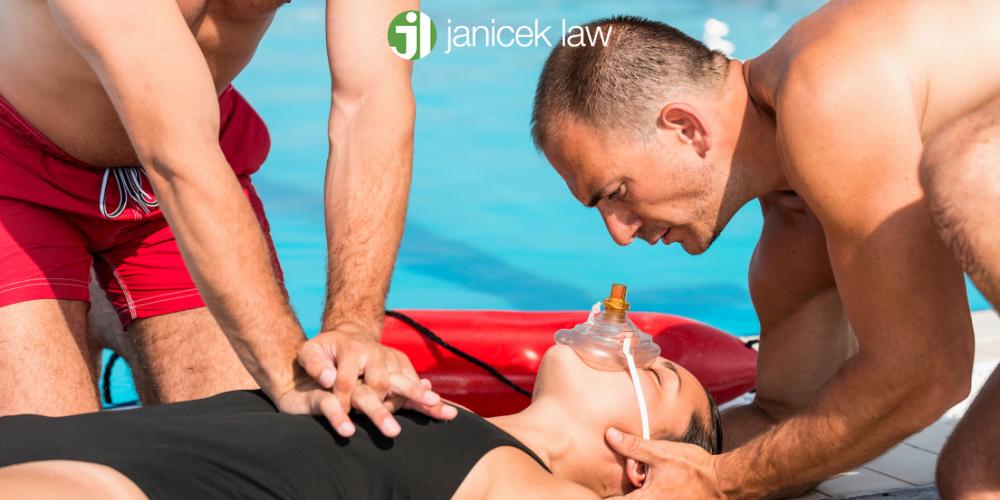San Antonio Drowning Accident Lawyer
San Antonio Swimming Pool Drowning Lawyer
Tragically, drowning is the leading cause of unintentional injury death among young children, accounting for approximately 4,000 deaths every single year according to CDC data. Thousands more children suffer serious injuries and permanent disabilities from non-fatal drowning accidents. Many of these drowning incidents occur at both public and private swimming pools. The good news is that swimming pool accident victims can recover financial compensation for damages – such as medical expenses and lost wages – through a civil lawsuit. And a San Antonio swimming pool drowning lawyer at Janicek Law can help victims do just that.
If you or a loved one suffered catastrophic injuries or death from swimming pool accidents involving negligence, you may have grounds to file a civil lawsuit. Our team of experienced attorneys can take on drowning accident cases that occurred at both residential and commercial pools. Call our law firm today at 210-366-4949 to schedule a free consultation.

What is a Drowning Accident?
Drowning occurs when someone stays underwater for a significant amount of time and suffers from respiratory impairment. Depending on how quickly the person is rescued – and the length of oxygen deprivation – they could suffer major brain damage or even death. Permanent brain damage can occur after just 4 minutes without oxygen. Meanwhile, death can occur between 4 to 10 minutes without oxygen.
Drowning incidents can happen anywhere in any body of water: a public pool, a private pool, a lake, a river, an ocean, a water park, or even a bathtub. An unintentional drowning could even happen during a boating accident, especially if the victim wasn’t wearing a life jacket or wasn’t promptly rescued.
How Common Are Drowning Accidents in the U.S.?
According to the Consumer Product Safety Commission and the Centers for Disease Control and Prevention (CDC), drowning is the leading cause of death among children ages 1 through 4 and the second leading cause of death among children ages 5 through 14. Most child drowning incidents happen in swimming pools, but again, anyone can drown in any body of water.
The CDC states that approximately 4,000 unintentional fatal drownings occur every single year. Meanwhile, approximately 8,000 non-fatal drownings occur every single year.

Common Causes of Swimming Pool Drownings
Children see swimming pools as a place of fun and wonder, but in reality, there are so many potential dangers that could lead to serious injuries, drownings, and/or death. That’s why pool safety is so crucial, especially for young children.
The most common causes of swimming pool accidents include:
- Negligent supervision from parents, babysitters, guardians, or lifeguards
- Not knowing how to swim
- Slip and fall accidents due to water puddles
- Tripping and falling over equipment and debris around the pool area
- Diving head-first into the shallow end of a pool
- Jumping off of a broken or unsecured diving board
- Children roughhousing and pushing each other on the pool deck
- Pool equipment that isn’t properly maintained, and therefore, malfunctions
If you or your child suffered a catastrophic injury or death due to one of these situations, you may have grounds to contact a San Antonio swimming pool accident lawyer.
Are Swimming Pool Drownings Always Fatal?
No, a drowning incident is not always fatal. There are plenty of near-drowning accidents that result in anything from minor scares to long-term disabilities, depending on how long the person was drowning before their rescue.
Listed below are just a few common near-drowning swimming pool injuries:
- Traumatic Brain Injury: When most people think of traumatic brain injuries, they probably think of sports accidents, car accidents, or other acts of violence. But traumatic brain injuries can also occur from oxygen deprivation, which is what happens during a drowning incident. Most medical experts say that permanent brain damage occurs around the 4 to 5 minute mark of oxygen deprivation. If the victim is revived around this time, they could experience a wide range of neurological deficits including mobility issues, speech problems, and so much more.
- Acute Respiratory Distress Syndrome (ARDS) is also called “wet lung” or delayed drowning. This syndrome is just what it sounds like: the drowning person gets water into the air sacs in their lungs, which can prevent them from getting adequate oxygen.
- Hypoxia is a condition that occurs when the body isn’t receiving enough oxygen to keep the soft tissues and organs functioning optimally. Sufferers may have a blue-ish tint to their skin as well as general confusion, rapid heart rate, and difficulty breathing. Without prompt medical care, the person can suffer organ failure and death.
- Hypoventilation is characterized by shallow and/or slow breathing that doesn’t deliver enough oxygen to the body. As a result, carbon dioxide levels in the body can become dangerous and cause some form of permanent impairment.
- Hypothermia occurs when the body is exposed to cold temperatures for too long. Drowning in cold water or being submerged in snow for long periods of time can lead to hypothermia. The average person’s normal body temperature is around 98 degrees Fahrenheit. Hypothermia occurs when the body temperature drops below 95 degrees Fahrenheit. 95 degrees is a hot, muggy, summer day in Texas, but for our bodies, this is too cold. The cardiopulmonary system and other organs will begin to shut down without immediate medical intervention.
- CPR Injuries: CPR is a life-saving procedure that is supposed to manually pump the heart and keep blood circulation going until the person regains consciousness. But what many people don’t realize is that CPR is a violent procedure that can result in major injuries. In fact, a 2019 study claims that people experienced an average of 7.6 broken ribs in 70% of CPR cases. But, in the grand scheme of things, it’s better to be alive and injured than dead. Still, it’s for this very reason that many states (including Texas) have Good Samaritan Laws to legally protect people who save lives, but cause injuries in the process.
Other Swimming Pool Injuries
Swimming pool accidents can also lead to a variety of other injuries that aren’t drowning-related, including:
- Concussions and/or spinal injuries from diving into the shallow end of the pool
- Torn ligaments
- Sprained muscles
- Broken bones
- Chemical burns or eye damage (from excessive pool chemicals)
- Lacerations from sharp pool edges and/or equipment
- Getting a limb trapped due to excessive drain suction
If you or a loved one has suffered from an aforementioned swimming pool accident injury, you have grounds to contact swimming pool accident attorneys at Janicek Law.

Can You Sue for a Swimming Pool Drowning?
Yes, you can definitely sue for a drowning or other swimming pool injury, if negligence was involved. Depending on the specific facts of your case, there are a few types of swimming pool accident lawsuits you can file and they are: personal injury lawsuits, premises liability lawsuits, and wrongful death lawsuits.
Personal Injury Lawsuit
If you or your child suffered major injuries or long-term disabilities from a swimming pool drowning accident, you could file a personal injury lawsuit in order to recover damages. Negligence must have directly caused the near-drowning accident. A San Antonio swimming pool accident attorney can help you prove that negligence occurred through the 4 elements of negligence:
- Duty of Care: The negligent party owed you (or your child) a duty of care to create a safe environment to swim in. This means having a fully functioning pool, warning signs, and attentive and trained lifeguards.
- Breached Duty of Care: The negligent party breached this duty of care somehow, leaving room for a near-drowning accident to occur.
- Causation: The negligent action or inaction directly caused the near-drowning accident and other injuries.
- Damages: The drowning victim suffered a wide variety of damages for which they should receive financial compensation.
Premises Liability Lawsuit
Premises liability violations are basically a set of unsafe conditions on someone’s property that could cause major injury.
In the context of pool drowning accidents, this could include equipment or other debris around the pool that causes someone to trip, fall, hit their head, and drown. In this scenario, the swimming pool owner failed to keep their pool area safe and free of trip and fall hazards, and therefore, they should be held responsible for the near-drowning accident injuries.
Other examples that could warrant a premises liability lawsuit is if a hotel failed to secure the access to the swimming pool to prohibit children unaccompanied by adults accessing the pool or failing to maintain clarity of the pool water. If someone suffers a near-drowning accident as a result of these scenarios, they could possibly sue the property owner for a premises liability violation.
Wrongful Death Lawsuit
Wrongful death lawsuits are reserved for fatal pool drownings. In Texas, the victim’s surviving parents, spouse, or children may file a wrongful death lawsuit and recover damages.
Here is an example of a fatal drowning example that could warrant a wrongful death lawsuit: A young child begins to drown at a public swimming pool. The child’s parents are at the vending machine, buying a drink for their other child, so they don’t see the drowning happening. The one lifeguard on duty is distracted by their phone, and discovers the child unconscious in the pool several minutes after they began drowning. By the time the lifeguard actually rescues the child and begins CPR, they are already dead. Had the lifeguard been paying attention and rescued the child immediately when they began drowning, they could have survived. The lifeguard acted negligently, and therefore, the child’s parents have grounds to file a wrongful death lawsuit.
Possible Liable Parties for a Swimming Pool Drowning
There are many types of negligent parties that could be held liable for a swimming pool injury or drowning, including:
- Hotel, water park, or summer camp property owners
- Owners of public pools or private pools
- Neighborhood pool owners
- Lifeguards
- A family member, friend, babysitter, or other guardian
Depending on the specific facts of your swimming pool accident, it can be difficult to determine who is actually liable. That’s why it’s so important to hire San Antonio swimming pool accident attorneys at Janicek Law. We can investigate the details of your claim, figure out exactly who is at fault, and gather evidence to prove that negligence played a role in the drowning accident.
Damages for a Swimming Pool Drowning
A San Antonio swimming pool accident attorney at our law firm can help you recover financial compensation for the following types of damages:
- Medical bills
- Physical therapy bills
- Expenses associated with necessary medical equipment such as motorized wheelchairs and other assistive devices
- Lost wages
- Loss of earning capacity if the victim suffers a permanent disability from the near-drowning accident and therefore can’t complete their normal job duties
- Permanent disability and/or disfigurement
- Emotional distress
- Mental health counseling bills
- Physical pain and suffering
- Loss of consortium
- Loss of enjoyment of life
- Funeral and burial expenses if the drowning incident was fatal

